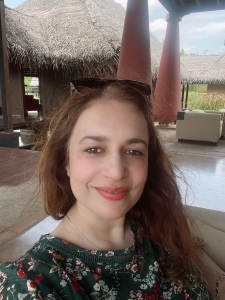I’m being facetious. It is quite far from being any version of wonderful, cohesive or civilised. As the Novel Corona traipses through our towns and cities like a merciless diabolist, we as humankind, as a planet, could not be rent more asunder.
How did we get here? When did all the values of humankind that stirred the heroic tales of yore become so tenebrous, so archaic? How did we become so divided, so intolerant, so extreme? How, despite belonging to the same species, did we become so “different”? And how did those contrived differences take on such a toxic, pestiferous life of their own?
We, as human beings, have been teetering on the edge of our humanity for some time now. The constant slide towards the precipice of retrogression has been insulated only by the crowdedness of our lives and the increasing obscureness of what we are, at our very core, as civilised beings. Indeed, we have, for quite some time now, been navigating the waters of life with a broken moral compass.
The stark wretchedness of our complete inability to come together as a global collective with a common objective has been grimly parodied by the current pandemic. It has laid bare that which was barely concealed: the self-defeating, meteoric rise in national isolationism and exclusionary economics. It has highlighted the dangerous precedent set by the Post-Trump “America/ My Country First” mantra, while any similitude of a global community ideology/ platform has become a mere spectre in the darkness of the 2020 world stage.
If one steps back to look at where we are after 200,000 years of evolvement, even the most practical and jaded amongst us would cringe at what we bring to the Evolutionary Table. The Novel Corona has struck at the very core of our collective societal and sovereign ethics, morality and probity, exposing them for the tarnished chattels they have become. It has, however, also afforded us the opportunity to visualise the propitious crossroads we are at, as a species.
“The Anthropocentric Age – the first age in which humankind is the dominant species on the planet – cuts both ways: it is up to us to destroy or save the planet. We certainly have the ability”, said Craig Ventor. Can we then, overcome our disparate, divided egos and concertedly embark on an intrepid new philosophy for A Brave New World? Or are we going to wait for that epochally-inevitable “Alien/ Divine” intervention to then put us on the straight and narrow?
In the words of Issac Asimov: “It is change, continuing change, inevitable change, that is the dominant factor in society today. No sensible decision can be made any longer without taking into account not only the world as it is, but the world as it will be”.
Right now, viewed from a cosmic lens, Earth appears to be blunderous, sick and unkind. That is not the legacy we want to leave to the universe.
De Khudai pe aman.


Well done! I wanted to tell you how much I appreciated your clearly written and thought-provoking article. While much had been written on this topic your article expresses every aspects without taking an emotional stance. Kudos to you. Finally, the vacabulary is simply amazing. If not for people like you, many english words will be long extinct by now.
LikeLiked by 1 person
What an amalgam of hard to understand English words your latest ramble is. It reminds one of the SAT which one had to take if one wished to enter an American college or university. Never since then have so many difficult words been found hanging out together.
Perhaps to you might want to include a list of meanings of such words in your footnotes.
LikeLike
Haha! Heavily veiled as it is, I’ll take that as a compliment! The pedant in me looms large when I put pen to paper/ pixels behind the writing. Still, thanks for the feedback.
LikeLike